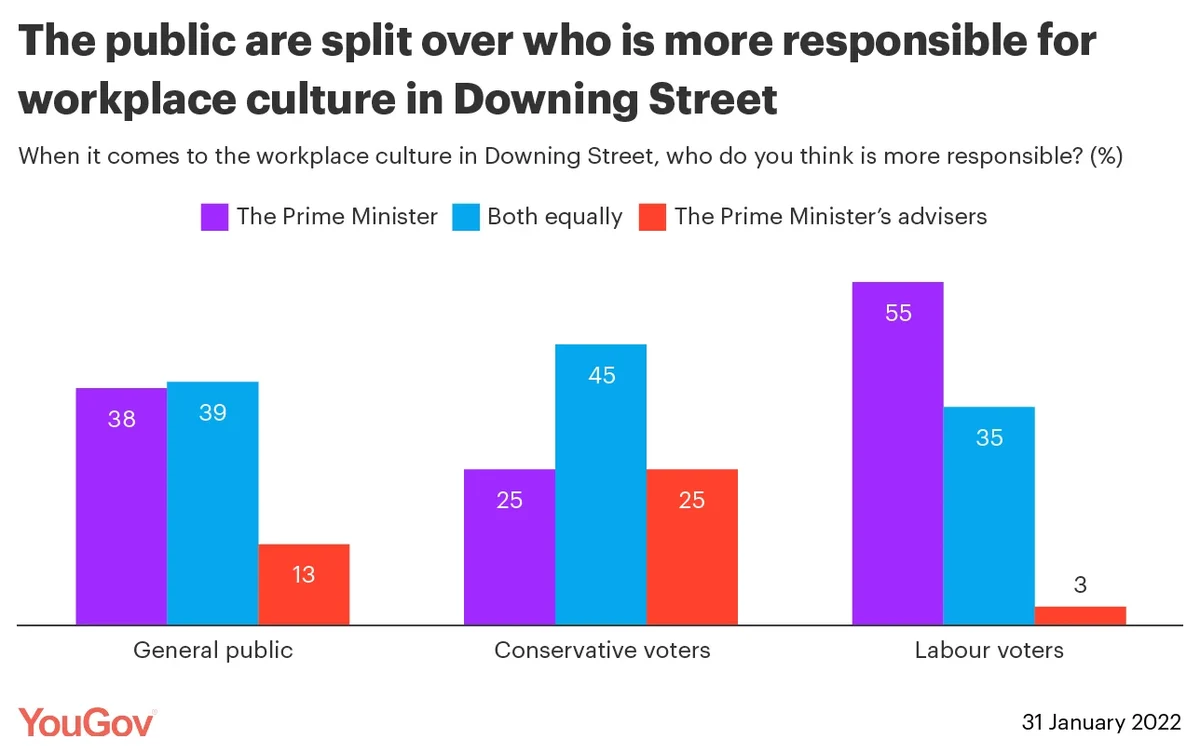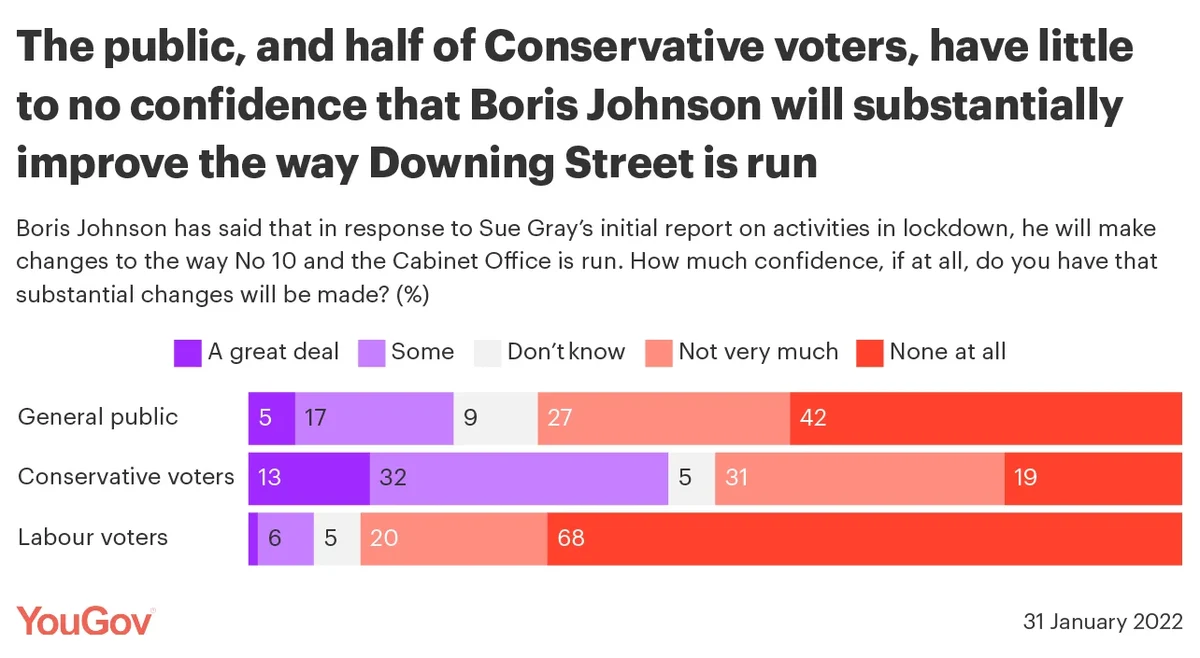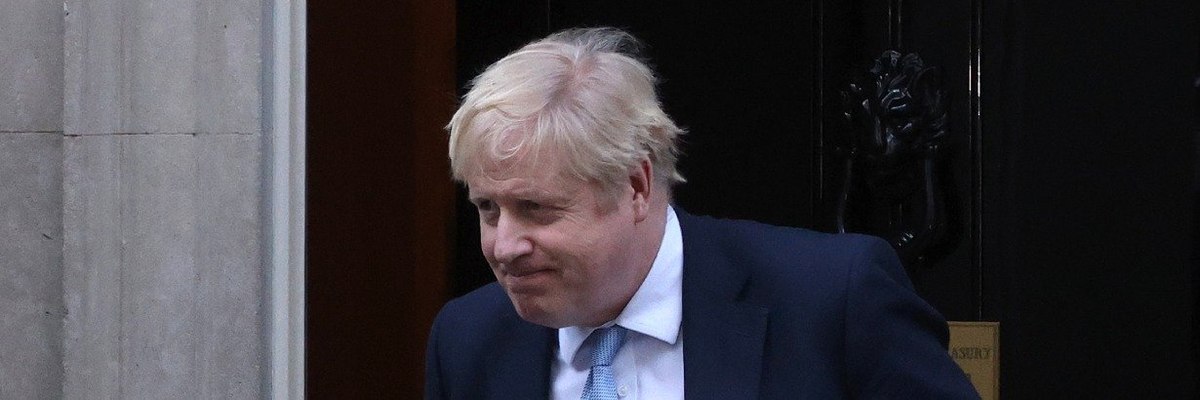Voters have little faith in promised changes to the workplace culture of government
Despite being heavily constrained by the ongoing police investigation, the preliminary report by senior civil servant Sue Gray into the alleged parties in Number 10 Downing Street has caused quite a stir.
The update, issued today, found "failures of leadership and judgement" throughout Number 10 and the Cabinet Office, criticised the “excessive consumption of alcohol”, and said some events "should not have been allowed to take place". Making a statement to the House of Commons, Boris Johnson said he accepted the initial findings in full. "I get it and I will fix it," he said.
A new YouGov snap poll conducted after the release of the report finds Johnson’s speech has done little to sway public opinion, however. By 63% to 25%, Britons remain firmly of the opinion the prime minister should resign, rather than remain in office. This represents little change in those thinking Johnson should resign since our last poll on 25 January (62%).
Johnson retains the support of half of Conservative voters, with 51%, (+2 versus 25 January) currently thinking he should remain in his role, while 38% say he should resign, a figure unchanged since the last poll.
In her report, Gray also said there should be “robust policy” covering the consumption of alcohol in the workplace, as some have accused Number 10 of developing a “drinking culture”. Promised changes by Boris Johnson include an overhaul of the leadership inside Downing Street – a creating a new “Office of the Prime Minister” to oversee Number 10.
However, the public are split over whose job it should be to manage the workplace culture of Number 10. Some 38% think the prime minister is the most responsible for the workplace culture in Downing Street, while 13% say their advisers are. Another 39% think both the prime minister and their advisers are equally responsible.

Conservative voters tend to think responsibility for the culture behind the iconic black door is a shared burden between prime minister and advisers (45%), as opposed to being solely down to the prime minister (25%) or their staff (25%).
Labour, on the other hand, think the prime minister is most responsible for it (55%) as opposed to their advisers alone (3%) or sharing the job (35%).
Johnson also said it was time to address the "fragmented" nature of government, review the civil service code of conduct, and improve the way Number 10 works with Parliament.
Despite his promises, 69% of people have little to no confidence that substantial changes will be made – including 42% who have “none at all”. Only 22% of people have some (17%) or a great deal of confidence (5%) changes will be made.

Even among Conservative voters, 50% have little to no confidence in new measures to change the way Downing Street and the Cabinet Office. Labour voters overwhelmingly lack confidence in major changes (88%).








